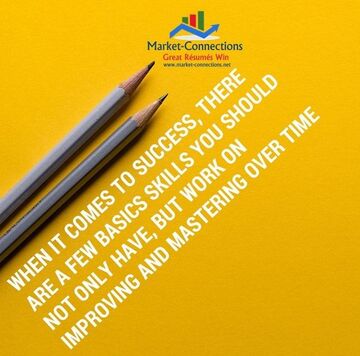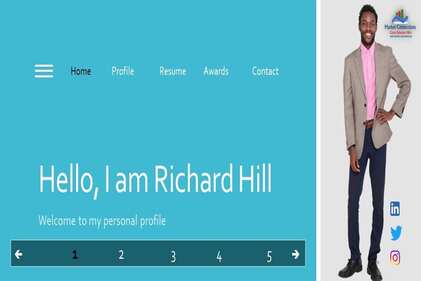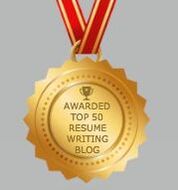How To Become A Personal AssistantImagine a solopreneur advancing in his/her career and beginning to feel overworked. More often than not, s/he also misses spending time with friends and family. It’s time to hire a personal assistant. Hiring a personal assistant can free up his/her time to focus on the bigger picture, spend more time with family, or have more time to spend on other projects. As a personal assistant you will begin to manage the tasks that were time-consuming for your boss. More often than not, you will also be a second pair of eyes and ears. You will give your boss the benefit of someone working closely with him. Read This Before Interviewing As A Personal AssistantKnow your list of relevant skills. List them in your mind in the order of their strength. In this role, employers often begin with delegating the easy, repetitive tasks out of their schedule.
You must know the market value of your competencies. Be prepared to articulate and explain the value you bring forth to this business Employers create a budget for paying your salary. Have a realistic salary range in mind and be prepared to negotiate. Are you applying as an independent contractor, part-time, or full-time assistant? Will you be working locally, or remotely? Find out how much help is needed to begin with, and whether or not the support is needed in person.
Carefully review the job description. Try to clarify any ambiguity about the level of support that is needed and what qualifications or skills you may require.
Use the hiring process as an opportunity to learn about the operation. Think about a task (or tasks) an assistant would do regularly. During the interview, ask them about their business' internal process to achieve a certain goal or finish a task. Everyone can make a job description look impressive, but that doesn’t always mean that it really is the ideal job. Take the time to learn about how to be become a personal assistant. When you master the task that your boss wishes to keep out of his radar (like researching flights), you’ll save his/her time and energy to give to he/her business, friends and family, or personal growth. About the AuthorMandy Fard is a Certified Professional Resume Writer (CPRW, CMRW) and Recruiter with decades of experience in assisting job seekers, working directly with employers in multiple industries, and writing proven-effective resumes. Digital InterviewingWhen the pandemic took hold in 2020, video conferencing became the go-to tool for many businesses. Video provided a way for team members to stay connected regardless of where in the world they were. At the same time, video gave companies a way to host effective training and interviewing experiences. There was an increase of 67% in 2020 of interviews held remotely over video conferencing software. Top Tips for Making a Positive Impression Over VideoWhether your video interview is with one person or with a group, it’s important to know how to present yourself in the new age of video. Learn how to make a positive impression by using these strategies. Choose a Professional SettingFirst, ensure that your background isn’t going to detract from your professional image. Digital Interviewing can be done whenever you want, wherever you want. However, that doesn’t mean you should be hosting important meetings from your sofa. Ultimately, you want to choose a space that’s going to present you in the best light – literally. Look for a well-lit area in your home where you’re not going to be covered in shadow. Ideally, you’ll want a plain wall, a bookshelf, or something else that seems professional in your background – rather than just a messy spare bedroom. Test the lighting and setup in your video space by turning your camera on and checking to see what you look like. Ensure that the space you’ll be meeting from is quiet and isolated, so that others won’t be distracted by whatever is going on around you. Ensure That Everything Works ProperlyStart by making sure you know how to use your conferencing software long before the meeting is set to begin. You can try a test run with a colleague or friend. Check these items:
Dress to ImpressIt's very important to know what to wear to a job interview. Just because you can go to work or a video meeting wearing casual attire, it doesn’t mean you should. If you’re having a professional conference or an interview, dress professionally. Wear a full suit or other attire appropriate for you and the setting. Avoid simply dressing up the top half of your body. You might end up standing up. As countless events have shown, it’s easy to forget that you’re not wearing your bottom half of clothing when you’re in the middle of an animated conversation. It’s also worth noting that dressing correctly can give you a crucial confidence boost too. Dressing appropriately makes you feel like you deserve the job you’re applying for. Be PreparedIf you were having a meeting or interview in the real world, then you would probably have notes and presentations to take with you. The same can be done in your video meeting. Simply ask to present a slideshow in your video conference (and learn how to do that beforehand). If you want to have notes handy, keep them on your screen, so you don’t have to glance away and look down at your lap in the middle of a conversation. You can also have a cheat sheet stuck somewhere close to your camera, so you can grab quick pieces of information without being obvious. This is one of the biggest benefits of conducting a video interview or meeting instead of connecting with someone in person. Pay AttentionFinally, like in any conversation, you’ll make a better impression if you pay attention. These techniques will help:
Video conferencing is now an important part of our lifestyle and of the business landscape. Learn to excel in using video and take advantage of these tips to make a positive impression via video. You’ll be glad you did! About the AuthorMandy Fard is a Certified Professional Resume Writer (CPRW, CMRW) and Recruiter with decades of experience in assisting job seekers, working directly with employers in multiple industries, and writing proven-effective resumes. How To Be More EfficientYou hear all the time that you or your company needs to be more efficient at work. But, do you know how to accomplish that? Efficiency seems like a word that is thrown at as the end-all-be-all answer to problems within an organization. Without a proper plan, the likely result will be confusion and chaos. The following tips can help you when you are given the initiative to be more efficient. Time ManagementIf you and your team are not managing your time efficiently, you are going to find it hard to move the company forward. The team will constantly be missing deadlines and playing catch up. This makes the group look bad and causes undue stress on the team. The likely result will be high turnover at times when team members are needed the most. LearningAlways be on the lookout for how to improve your job or your teams’ jobs. This often requires learning new skills. The more you learn, the easier it will be to find alternative methods that work better. For example, a skill like "effective communication in the workplace" is crucial to being more efficient at work. OrganizationIf your office environment is cluttered and there is no sense of organization, it can impact the productivity of the entire group. Some professionals can assess your current situation and make recommendations on how to improve the environment. This can include such aspects as desk clutter, filing, and even ergonomic issues and proper placement of fixtures or furniture AutomationWhen you find ways to automate, this frees up your staff to work on more important tasks. Mundane tasks that eat away the time of your staff are the best candidates for automation. It is possible to go overboard with automation which can cause slowdowns when the automation processes fail. Try to determine the best tasks to automate without overdoing it. DelegateIf you are micromanaging the work of your team, you won’t have time to handle your own tasks. Your team won’t respect the fact that you are doing tasks that they should be doing. You hired them for a reason. Let them get their jobs done. It’s okay for them to come to you when they get stuck. But, you should guide them rather than simply do everything for them OutsourceWith corporate cutbacks, delegating may not be easy to accomplish. Companies are expecting their employees to do more with less. But, managers still need to get their work done. In such cases, it may be worthwhile to consider outsourcing some of the tasks of your team. The benefits of outsourcing are that it does not increase the company’s headcount. Should I Put My Vaccination Status on My Resume?Fully Vaccinated for COVID-19Should you include that information on your resume? I have recently seen many polls on LinkedIn about including one's vaccination status on the resume. It seems as though the reactions are varying with time. In the meantime, my clients have been asking me about whether or not medical information (i.e.: vaccination status) must be included or listed on their job search documents. At this point, there aren't any solid Yes or No answers that would apply to all situations like a regulation. Today, it still depends on each job's requirements. Mandatory VaccineThe Biden administration announced a new rule from the Department of Labor on September 9, 2021 that will require all companies with 100 or more employees to ensure each worker is fully vaccinated or can show a negative COVID-19 test at least once a week. The standard, which will be enforced by the Occupational Safety and Health Administration (OSHA), will affect approximately 80 million workers. Requiring employees to be vaccinated as a condition of employment is legal. Many large employers — including Disney, Tyson Foods, and United Airlines — already require employees to be vaccinated. When you log into Indeed, you will note changes. For example, the number of job postings on the site requiring vaccination against COVID-19 has increased by 34 percent at the end of the first week of August 2021 compared to one month prior. Job postings requiring vaccination were up 90 percent over the same time period. According to a survey conducted by ResumeBuilder.com in August 2021, 33 percent of hiring managers will automatically eliminate résumés that do not include vaccination status. And 69 percent of the 1250 hiring managers surveyed say they are more likely to favor candidates who are fully vaccinated against COVID-19. ResumeBuilder.com also reports that 63 percent of companies surveyed are mandating vaccinations for employees as of August 2021. Another 32 percent will give priority to candidates that list they are vaccinated on their resume. Seventy-seven percent of hiring managers surveyed say they prefer applicants include vaccination status on their resumes. As with any information you include — or exclude — on your resume carefully consider whether the information is relevant (in this case, it would be if vaccination status is requested in the job posting) and whether including the information (if not requested), might disqualify you from consideration. (Some recruiters or hiring managers may be turned off by the disclosure.) General Guidelines About Disclosing Vaccination Status On Your Resume
Don’t want to include your vaccination status on the resume itself? You can list your vaccination status in the cover letter — although, be aware that some recruiters and hiring managers do not read cover letters. Immunization records are protected health information under the Health Insurance Portability and Accountability Act (HIPAA). However, you are always free to disclose your own medical information voluntarily. No matter whether you disclose your vaccination status on your resume or not, this may be part of a background check conducted after a job offer is extended, in the same way a drug screening may be required. SOURCE URL: https://www.market-connections.net/blog/should-i-put-my-vaccination-status-on-my-resume 
Image by mohamed Hassan from Pixabay;
How To Step Down The Corporate LadderMost career advice revolves around moving up the career ladder. However, there are also those times when you must step down the corporate ladder. If that is your current situation, chances are high you had not planned for the changes. Our economy is fluctuating and the pandemic is not fully over yet. Certain businesses or industries were hit harder than others. Despite having a great job at a successful company, you may still be considering a career change. Or, you may just wonder about what to do if you are in a declining industry. In the end, you just may have to resize your career. Regardless of the reason, one thing is for sure. Making conscious choices and decisions will make it easier for you to move into your next role. Learn the modern rules for stepping down the career ladder with finesse. Benefits Of Stepping Down The Corporate Ladder
Strategies To Step Down The Corporate Ladder
Downsizing your career may open the door to new opportunities and establish a new balance in your life. Be prepared to explore your alternatives and market yourself to new employers. You may find that the outcome may be more fulfilling than what you left behind. Life has a way of often surprising us! About the AuthorMandy Fard is a Certified Professional Resume Writer (CPRW, CMRW) and Recruiter with decades of experience in assisting job seekers, working directly with employers in multiple industries, and writing proven-effective resumes. Civil Conversations In The WorkplaceCivil conversations are engagements aimed at sharing views or information on topics of high importance in the lives of the general public. They usually stem from and are dictated by our analysis of what mainly influences our social, economic, and political lives, among other things. However, the level of engagement and the success thereof is so much dependent on the personalities of the parties involved. Some people strongly dislike civil conversations citing that, depending on the mental state of the person one is conversing with, the conversations can move from simply sharing information to showing off one’s intelligence and trying to convince the other party that your views are more valid than theirs. Where one is not open-minded, there is a tendency to want to defend beliefs or anything one holds dear to them, which defeats the whole purpose of the engagement. It can easily lead to arguments or fights while where verbal aggression and abuse are present, the focus is lost, and the time invested in the conversation is wasted. Also, it is easy to step out of the line with civil conversations. Controversial issues may arise which may cause trouble for an individual or the company. Colleagues are also the people that we spend the greater part of the day with, as such, it is important to be careful not to ruin our relationships with them to ensure that we remain the team the company can rely on to achieve goals. The following points can help us engage in civil conversations without the risk of messing up our relationships: Know When To StopIt is important to know how to get along with your coworkers. It is also very important to have the ability to tell when things are spiraling out of control and to know when to stop to avoid having the conversation turn into a conflict. We cannot control how other people react to us but always have power over our own words and reactions. Set Your LimitsWe need to set boundaries with regards to how farther we allow our discussions on certain topics to go. We can choose to avoid anything likely to spark an argument or to offend the other person. Controversial topics about individuals or the company itself must be avoided especially when the conversation is not aimed at contributing positively to changing issues of concern. Discussing the absent must be out of bounds especially if the issue does not concern us unless we are helping them to mend relationships. Choose WiselyWhen you have worked with people for a while, you get an idea of how they reason as well as their emotional state. It gets easier to know the right people to engage in meaningful conversations with. If you do not know the person too well, then you probably should not have too much to say to them. Even when we have chosen wisely the people to engage in discussions with, we still need to go further to choose our words wisely. We need to consider the possible impact of our words while they are still just thoughts. The language we use to express ourselves can determine the outcome of expressions that would otherwise be harmless when said right. Where we have our own assumptions, the best way to present them would be in the form of questions that seek clarity or a deeper understanding of an issue rather than an accusation. We should also avoid sarcasm and derogatory language especially when the person we are conversing with is not a close friend. Be Open-MindedThe most difficult people to have meaningful discussions are those who are too emotionally attached to their beliefs. The first thing that comes to mind if a point mentioned contradicts what they believe in is that they are under attack. Anything that follows is usually an attempt to defend their beliefs. To such people, anyone who holds beliefs contrary to theirs is either enemies or people who need conversion. If you are one of those people, learning about life in general and experiencing meaningful personal growth will be slow or nonexistent. Listen to other people and seek to understand why some things matter to them and why others do not. Listen More And Talk EnoughThere is a type of people who always want to be heard and will not do much listening every time they get a chance to interact with others. I am sure you can imagine how much such people learn from others – zero or little. The mentality is that they already know so much or enough and the only job that is left is for them to share ‘knowledge’, while some just enjoy being the center of attraction. A good strategy is to keep active listening examples in mind and exercise listening as a skill. If we learn to listen more and talk enough, we will be in a favorable position to acquire more knowledge and share only things relevant to the discussion, enough not to overwhelm the listener. Understand Humans In GeneralWe need to always keep in mind that people go through various things daily and some are not strong enough to keep their emotions in control. This means that even people with whom we normally engage in conversations may not be ready for some topics or may react differently to them than they normally do.
Effective Communication in the WorkplaceCommunication is important in the workplaceCommunication is the key to happy or healthy work and personal relations and success in leadership requires strong communication and interpersonal skills. That is how the dynamic leader gets the most out of relationships, improves relationships, or saves relationships depending on how well he/she communicates with the parties involved. It is impossible to get everyone to work together and continue delivering exceptional results at work if effective communication is lacking. Begin By Working On Your Communication Skills As A Leader To Get The Results You Want From Your Team. Are you worried that your team is underachieving? If you said yes, then know that a lack of communication is the number one reason why your team is failing to carry out the work delegated to them despite showing promising signs that they can do so. So, how can you know that your communication skills are polished? How can you get everyone to improve their communication skills so that you can begin seeing desirable results? You can achieve this by observing how well you communicate with everyone in the office as well as noticing how team members communicate with each other. Bad Communication HabitsThere Are Bad Habits You Should Change To Begin Seeing The Results You Desire Effective communication begins with getting rid of some of the bad habits that you may have cultivated as a leader without paying too much attention to it. Because believe it or not, producing quality work demands that both your team and you play a certain role in getting work done by communicating efficiently. Your employees may be failing to live up to their potential because you have created an environment that makes interactive collaboration uncomfortable or uneasy. You may have cultivated a habit of despising or overlooking every idea they come up with. They may have gotten used to having you dictate how individual tasks should be done, etc. and have become submissive. Remember that going far in your business is not an option if you have a team of overly submissive individuals. Refusing to listen to different views and creating an environment that makes sharing ideas or opinions impossible are examples of bad habits you need to get rid of if you are to achieve what you want. If your workers or team members are not comfortable to share their ideas or thoughts with you or with each other on different issues at your workplace, advancing will be a challenge. Therefore, learn to create an environment that encourages people to share their thoughts with you and come up with new ways of carrying out tasks. Encourage contributions from your team as a way of giving them the assurance that you value their presence as well as insights. You may also want to look into ideas for employee appreciation. Who doesn’t want to be part of a team that values his or her views right? Tips To communicate Effectively In The WorkplaceEmphasize Key Points
Remember to write down key points when drafting notes for every meeting that you are going to hold and put emphasis on main points at the beginning of the meeting as well as the end. That is how you ensure everyone present retains the important information you want them to leave with. Manage Your Time Wisely During Briefings Do time management apps help your productivity? Perhaps it's a good idea to consider them. There is a plethora of time management apps available. For example, individual time management is as important as project time management. Time management is crucial during meetings or briefings hence if your Monday morning meeting is supposed to last for an hour make sure you do not add 15 or more minutes. Keeping your meetings short is an excellent way of making sure everyone remains engaged. Use Emails And Visuals Send formal emails outlining your goals when working on a big project to keep everyone involved up to speed. Keep your emails short and include important information only such as how far you have gone, changes that may have arisen, and upcoming meetings. Don’t forget to use illustrations, charts, or visuals when communicating your vision, or when embarking on a new project that requires high levels of concentration and retaining knowledge. Speak Clearly Communicating efficiently involves avoiding repeating words or instructions when talking to other people. So, make sure you speak clearly. Ask for feedback and address concerns or questions that your team members may have before closing the assembly. Use a Personal Website in Your Job SearchIf you’re job searching, you may consider having more than a paper resume. Graphic designers and other creative types have been using personal websites for years. Today, the idea is becoming more popular. Two reasons stand behind this. The growing interest in remote work makes online communications more crucial. You will find that simple templates make it easy for anyone to produce a professional looking site without having to go to coding camp or art school. Impress prospective employers and stand out by showcasing your qualifications in a personal website. Consider how to create and promote your personal website. Create Your Personal Portfolio Website
Promote Your Personal Website
A personal website could make your next job search faster and more successful. It’s one more tool that helps you stand out from the crowd and show an employer how much you have to offer.
Top Tips for Getting the Most out of Career CoachingThere are unlimited ways to get coaching services these days. One internet search will produce thousands of results for all forms of coaching. Finding coaching is easy, getting the most out of coaching….not so much. Getting the most out of career coaching has more to do with you than it does with your coach. Assuming your coach is reputable and knows how to deliver excellent coaching, the rest is going to be up to you. Here are some top tips for getting the most out of career coaching before you dive in:
Find The Right Career CoachFind the right career coach- Finding the right career coach for your needs is the most important part of coaching. If you don’t have the right career coach for the job, it simply won’t work. You wouldn’t hire a fitness coach to teach you to potty train a toddler. Be sure to research and find the right career coach for your needs. The right coach should specialize in what you need most. Perhaps you need help with job searching and need someone to show you where to start and how to build a system for yourself. Or maybe you need help with working with recruiters and salary negotiations. Perhaps a mid-life career change is what you have in mind. Try to find a career coach with a niche as close to what you need as possible. Hiring a career coach is great but hiring a career coach who specializes in how to negotiate salary when you need to learn about how to evaluate a job offer, makes the most sense. Listen More Than You TalkListen more than you talk- Use listening as a skill. Let the coach do their thing. Coaching isn’t therapy. You need to allow the coach to take you on the journey to what you hired them for. Let them teach you, coach you, and educate you so you can take in as much during your coaching time as possible. The right coach should offer materials that supplement their coaching. People learn in many ways, having supporting materials can help. If your coach offers videos, slide decks, audios, or one-on-one coaching, use it all to help you achieve your goals. Use your time to take in as much info as possible without being distracted. Stick With ItStick with it- Some people may give up coaching too quickly. Stick with your coach and make a plan together to evaluate your coaching along the way to ensure it’s a win-win. Nothing happens overnight; so, be willing to invest in your future and stick with coaching until you hit your goals for professional development. The right coach will help you evaluate your progress and give you feedback along the way on whether or not you are closer to or farther away from your goals. Checking n can help you make any changes that will keep you on track. You have to follow the tips on tips to stay motivated and above all, don’t give up when it gets tough or it seems like things aren’t working. Communicate and stick with it. There are great coaches out there. Once you find one, you’ve got to do your part to get the most out of coaching. Follow these top tips to be sure you get the best coaching and that you make the most of your investment.
|
Categories
All
powered by Surfing Waves
AuthorMandy Fard is a Certified Professional Resume Writer (CPRW, CMRW) and Recruiter with decades of experience in assisting job seekers, working directly with employers in multiple industries, and writing proven-effective resumes. Archives
July 2024
|
-
Greater Los Angeles
and Kern County
-
[email protected]
.












 RSS Feed
RSS Feed



